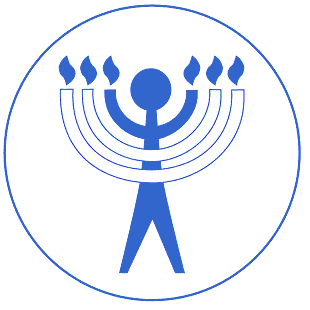The Jewish Humanist, May/June 1993
SHUALMIT ALONI IS COMING! YOU WILL NOT WANT TO MISS HER!
Aloni is the leader of the Meretz coalition in the Israeli Knesset She is the controversial Minister of Education and Culture, whose defense of a secular state has aroused the passionate hostility of the ultra-Orthodox. Over the past few months a public battle has been waged between liberals and religious conservatives over her membership in the Israeli government. The Orthodox want her head. The moderates see her as the one guarantee that the present regime will defend civil liberties and begin to dismantle the state support of traditional religion. This controversy has been featured on the front pages of most newspapers and given Aloni international fame.
Shula is a native Israeli who grew up in Jerusalem. Her early years were the formative years of the Jewish state. Reared in the secular Zionism of the Zionist pioneers, she hoped that the state of Israel would fulfill the humanistic dreams of the founders. To her dismay the Labor government of David Ben-Gurion compromised these ideals for political expediency and turned over the regulation of family life to the Orthodox. Her response to this betrayal was not the cynical resignation of most Labor politicians, but open defiance. She committed her life to politics, to feminism, to personal freedom and to the defense of the liberal democratic tradition of the modern Enlightenment.
This defiance was not easy. Given her talents and charisma, she could have, with little effort, achieved political power If had been willing to compromise the Integrity of her ideals. Her punishment was that she was banished by the leaders of the Labor Party to the periphery of Israeli political Golda Meir, in particular, was incensed her disobedience and by her embarrassing persistence. Golda, as Aloni points out, saw herself as the ultimate Jewish mother of the Jewish nation, whose children were not as wise as she was. When she encountered political resistance, especially within her own camp, her response could be ruthless. Golda believed that pursuing the cause of either feminism or civil liberties was a harmful division from the main task of Unifying the Israeli people in defense of the Jewish state against the Arab aggressors.
Shula expressed her defiance in many ways. She wrote books and newspaper articles and hosted a provocative radio show. She counseled the marriage and divorce victims of Orthodox law, finding creative ways for secular Jews to avoid Orthodox jurisdiction. She became a consumer advocate, mobilizing thousands of followers to press for domestic reform. She was elected to Knesset where she remained, for a long time, a sole advocate for women’s rights and Separation of religion and government. She organized a new political party, the Citizens Rights Movement (Ratz), which provided a clear public voice for the elementary personal freedom which we in America take for granted. For over a decade she was treated as a political pariah, a solo prophetic voice in a sea of cynics and chauvinists. But, in the last election, her party helped to create a coalition of the liberal left – Ratz and Mapam and Shinui – which named itself Merétz and went on to win ten seats in the Knesset. With Meretz, the Labor Party and Rabin were able to unseal the Likud and to achieve political supremacy. Aloni’s reward was the Ministry of Education and Culture, a crucial ministry which had been under Orthodox control in the previous government and which had wrought havoc with the secular curriculum of the state schools. The battle lines were now drawn, especially when she proclaimed that feministic values needed to re-enter the Israeli school system. She has now become the chief target of Orthodox hate. Even Rabin has wavered in support of her and has tried to censor her.’ Power has brought her no relief from continuous assault.
Now Shula is more to us than a brave Jewish defender of freedom and human dignity. She is the longtime friend of the Birmingham Temple and one of the founders of the Humanistic Jewish movement in Israel.
We first met her in 1979 when she consented to come from Israel to be our special guest at the annual meeting of the Society for Humanistic Judaism. Her appearance was transforming. The rapport between her and her American audience was electric. We loved her from the start. And she loved us.
In 1981, enthusiastic about the prospects For Humanistic Judaism in Israel, she helped to organize a dialogue between secular Jews from America and secular Jews from Israel at Shefayim, a seaside kibbutz north of Tel Aviv. Many important Israeli intellectuals and writers attended. Within two years the Israeli Association for Secular Humanistic Judaism was born.
Shula’s coming is part of our celebration of our Temple’s thirtieth birthday anniversary. One of the best things that has happened to us in the past thirty years is that we made the Shula connection. Her participation in our celebration is testimony to the fact that Humanistic Judaism has an important part to play In the Jewish world.

